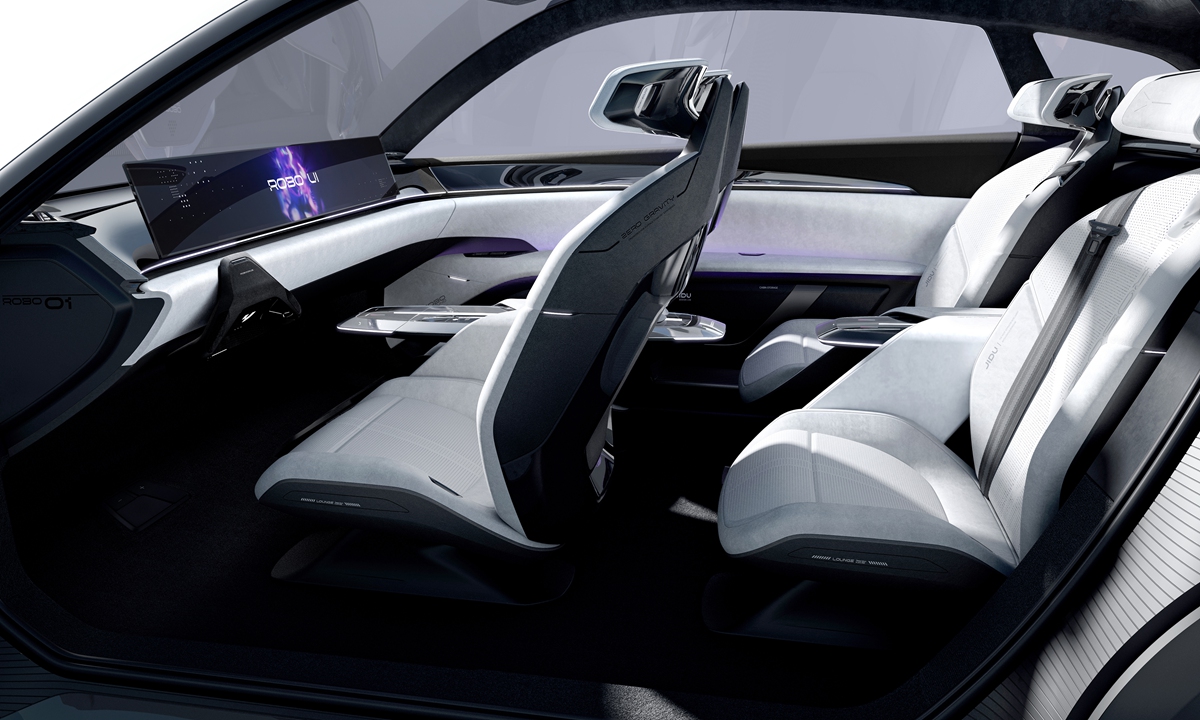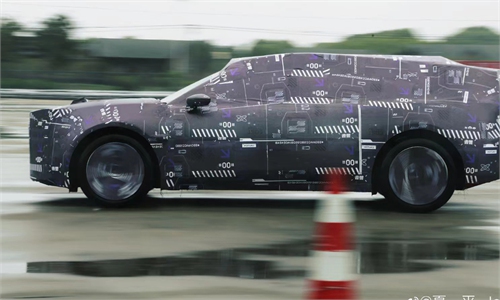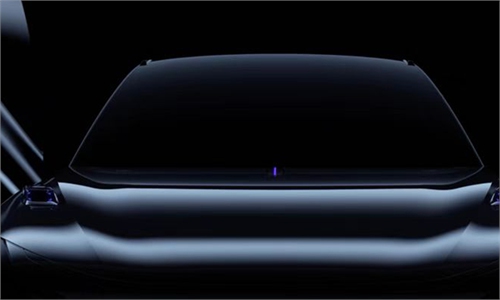Baidu-backed JIDU unveils ROBO-01, its first concept robocar, echoing Tesla’s Model-Y

Photo: Courtesy of Baidu
After 463 days of cross-border entry into the auto arena, Baidu's car manufacturing ushered in a new milestone. On Thursday, JIDU, an intelligent electric vehicle company backed by Baidu and Geely, unveiled its first concept robocar ROBO-01.JIDU plans to officially launch limited versions of its first production model during the coming fall, which will be 90 percent similar to the ROBO-01 concept car. In addition, JIDU will also unveil the design of its second production model at the Guangzhou Auto Show later this year.
Xia Yiping, CEO of JIDU said that JIDU's first mass-produced model is positioned as a medium-sized SUV, directly targeting the Tesla Model Y, and its intelligence level surpasses that of the Tesla generation.
From the era of traditional car manufacturing to the era of new car manufacturing, the average R&D cycle for new cars has been shortened from 4-5 years to 2-3 years. From the establishment of JIDU in March 2021 to the debut of its first concept car in June this year, the producer has updated its car manufacturing progress almost every 1-2 months on average over a 15-month period.
ROBO-01 was originally scheduled to be exhibited at the Beijing Auto Show in April. Due to the impact of the coronavirus resurgence in the city, the auto show was postponed. On the evening of June 8, ROBO-01 was unveiled in the Baidu Metaverse. With the blessing of 3D animation and dynamic music, the main display highlights such as appearance, interior, foldable steering wheel, automatic driving, and smart cockpit are listed, but size, battery life and pricing have yet to be specified.
Baidu CEO Robin Li said at Baidu's first-quarter earnings conference call earlier this year, that JIDU 's targeted market will be family cars, and the first mass-produced car will be priced at around 200,000 yuan ($29,936) and is expected to be mass-produced and delivered by 2023.
In the price range where the Tesla Model Y is marketed, there is no particularly good smart car that can compete with Tesla. JIDU's first mass-produced car will be positioned as a direct competitor to the Model Y, and will surpass the Tesla generation in intelligence, according to Xia.
Xia added that JIDU's first car will be mass produced at Geely Auto's plant in Hangzhou, East China's Zhejiang Province.
However, facing various pressures such as the epidemic, rising raw material costs, and a supply chain crunch, JIDU faces many challenges from debut to mass production and delivery.
Although total vehicle sales plunged in April due to the epidemic breakout, the sale of new energy vehicles (NEV) remains resilient. NEV sales were up 44.6 percent year-on-year to reach 299,000, compared with a year-on-year 47.6 percent slump for total vehicle sales during the month, data from the China Association of Automobile Makers showed.
In addition, in 2023, when JIDU's first mass-produced car begins to be delivered, many car companies will also be battling it out in the intelligent car market. For example, Li Auto will launch two pure electric SUVs in 2023, and Xiaopeng will have four new models that support XPILOT 4.0 next year.
When talking about the future competition with Huawei and Xiaomi, Xia said Huawei is a great company, but in terms of artificial intelligence, Baidu is stronger; Xiaomi is very capable when it comes to consumer products, but Baidu has a large ecosystem with hundreds of millions of daily active users.
"There is a big difference between making a car and making a mobile phone. After all, there is a big gap between the two in terms of manufacturing and R&D," he said.
Xia previously stated that the supply chain problem brings challenges, and a variety of chips are used during production verification process, noting that the company has set up a special team in charge of chips.
Global Times


